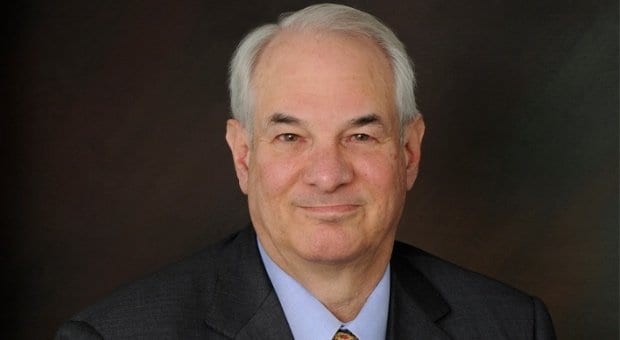The Federation of Law Societies of Canada has granted preliminary approval to Trinity Western University (TWU) to open a law school that some in the legal community say would discriminate against prospective gay lawyers.
In order to be admitted to TWU, students must sign a covenant agreeing to uphold Christian biblical teachings, including no premarital sex and no homosexuality. Failure to uphold these commitments, according to the student handbook, could result in discipline, dismissal or a refusal to readmit a student to the university.
In granting TWU preliminary approval, the federation said it had to examine only whether the proposed law school’s graduates would meet professional requirements for knowledge and competencies needed for entry to the bar admission programs in the Canadian common-law jurisdictions.
The final decision rests with the BC government.
President Marie-Claude Bélanger-Richard tells Xtra the federation was “deluged” with comments and opinions both for and against TWU’s application.
The federation appointed a special advisory committee of members of the legal profession to examine the feedback, she says.
The committee concluded that as long as the national requirement is met, there is no public-interest reason to exclude future graduates of the TWU program from law society bar admission programs.
“Members of the legal profession are bound to uphold the rule of law and fundamental constitutional values set out in the Constitution, including the Charter of Rights and Freedoms and human rights legislation,” Bélanger-Richard says.
“Adherence by lawyers to principles of non-discrimination in the exercise of their professional duties is an essential part of what defines a member of the profession,” she adds.
Toronto lawyer Clayton Ruby tells Xtra the federation’s decision is humiliating to the legal profession and an insult to the gay community.
“Gays and lesbians are second-class citizens,” he says. “The door has moved a little more tightly closed against gays and lesbians becoming lawyers and judges. A crucial part of democratic life is the openness of this profession.
“It’s really an embarrassment to the profession,” he continues. “We could have worn this decision with dignity and pride. Instead, they humiliated all of us.”
He says TWU’s law school would impose a “queer quota” on incoming law students. He estimates that there are approximately 1,600 places in law schools across Canada and that the 60 new places proposed by TWU would be off-limits to openly gay students.
“Straight students are eligible for 1,660 seats, and then there’s a quota based on an immutable characteristic for being gay — unacceptable and unconstitutional,” he says.
Queer articling student and TWU alumnus Jill Bishop agrees with Ruby. She says the decision means the 60 seats at TWU would be unavailable to gay students.
“That’s pretty blatant discrimination,” she says.
Bishop says she’s “disappointed but definitely not surprised” by the federation’s decision.
Bélanger-Richard says the school’s opening means there will be an increase in law school seats overall in Canada.
“Gays and lesbians might feel unwelcome to go there,” she says. “They’re not prevented from applying.”
However, as a result of the TWU application, she says the special committee recommended considering the addition of a non-discrimination provision to the national law school requirements, similar to that required of American law schools.
Bélanger-Richard says the federation council will explore the committee’s suggestion. She also notes that if practising lawyers are not meeting the codes of conduct as required in their jurisdictions, they can be subject to discipline.
Ruby says the federation abdicated its duty by leaving the final decision on accreditation to the BC government.
“They’ve passed the buck to the BC government, saying we shouldn’t have to deal with these moral decisions.”
He says the BC government could make a decision immediately.
Ruby told Xtra Dec 13 that approval could be open to a court challenge but now says he’ll wait to see what happens next before considering his legal options.
Meanwhile, Angela Chaisson, a lawyer at Toronto’s Ruby Shiller Chan Hasan law firm, and Marcus McCann, a University of Toronto law student, have created an online campaign to raise money for a potential legal challenge. “To effectively oppose the accreditation of Trinity Western’s law school, we need to raise enough money to oppose them in court,” they state. “While lawyers have stepped up to volunteer a significant amount of time, there are still lots of costs which will need to be covered.”
Until the TWU law school produces its first graduates, its approval will remain preliminary and be subject to regular reviews by the federation.

 Why you can trust Xtra
Why you can trust Xtra


